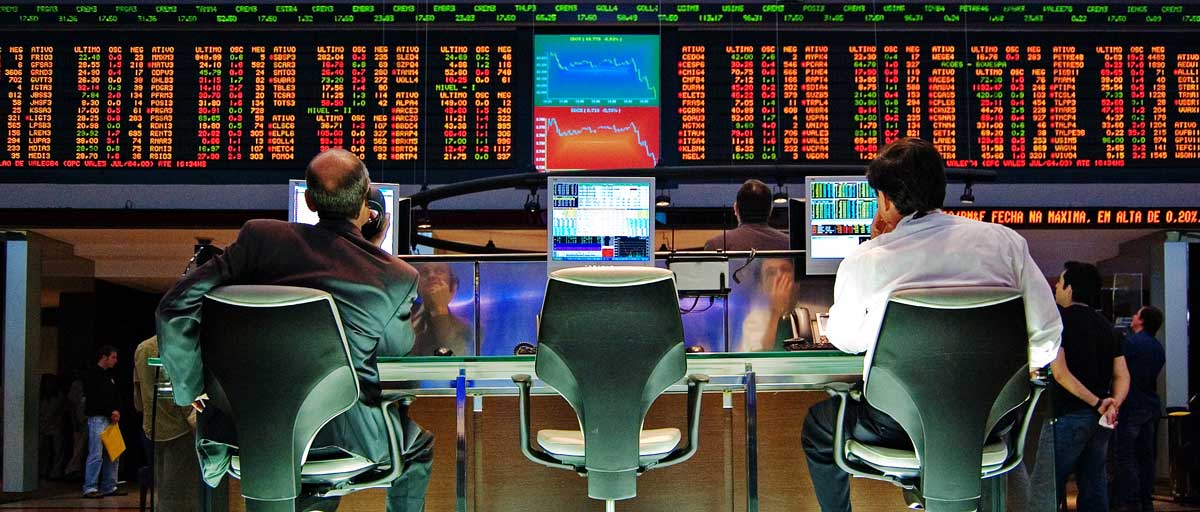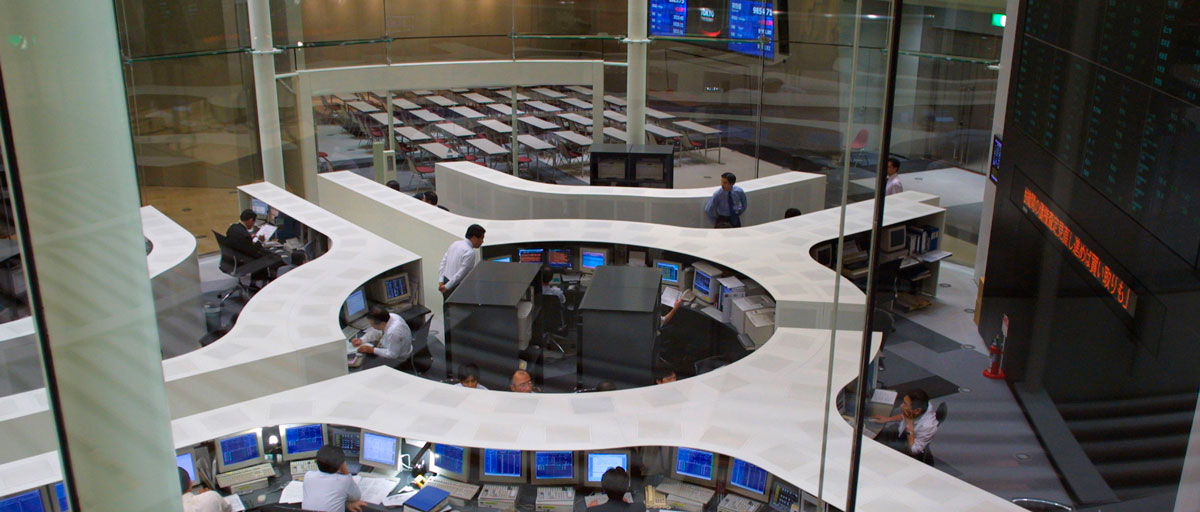
In the Anthropocene, information flows move at ultraspeed, clearly visible in the financial markets where algorithms can do hundreds of thousands transactions in matter of seconds. This creates new risks where changes are too fast for humans to respond, a new study argues. Photo: Wikipedia Commonsoto:
Bildtext får vara max två rader text. Hela texten ska högerjusteras om den bara ska innehålla fotobyline! Photo: B. Christensen/Azote
financial instruments
Superconnected, complex and ultrafast
Financial markets example of how information flows are turning increasingly faster and more complex in the Anthropocene
• In the Anthropocene, technological changes contribute to not only increased connectivity, but also ultraspeed of information flows
• The changes could create new systematic risks associated with increasingly superconnected, complex and ultrafast financial markets
• This requires new forms of political decision-making and research efforts focusing on governance responses for increasing transparency, slowing down, and decoupling
It may not be a global robot uprising but they are definitely coming. At Wall Street and the financial market at large, computer algorithms now do hundreds of thousands transactions in matter of seconds, outpacing any human trader by many orders of magnitude.
Algorithmic trading is no longer a marginal activity. It has increased from near zero in the mid-1990s to as much as 70 percent of the trading volume in the United States today. The new trading is picking up in European markets too, where between 30-50 percent of the trading in the equity markets are now done automatically.
“The nature of these changes pose fundamentally new challenges to governance as they require policy-makers to respond to increasing speed, complexity and global connectivity,” says centre deputy science director Victor Galaz.
Together with his political scientist colleague Jon Pierre from Göteborg University/University of Melbourne, he has published an article on the subject in the journal Complexity, Governance, and Networks.
This change is so drastic that some have proposed that global financial markets have evolved into a new ‘machine ecology’ where changes in the system’s behaviour are considerably faster than human response time
Victor Galaz & Jon Pierre, co-authors
New systemic financial risks
In the article, they note that increased trading with financial instruments, new actors and novel technologies are changing financial markets in transformative ways, possibly creating new forms of systemic risks.
Their analysis focuses on three properties: connectivity, speed and hyperfunctionality.
By connectivity they mean that flows of information and financial resources have expanded to cover not only larger geographical areas, but also an increasing number of sectors in society. For example, financial capital is increasingly linked to natural resources through the emergence of financial instruments such as biodiversity, forests, fisheries and weather bonds.
Speed is exemplified with algorithms that can execute trades in 0.000000740 seconds and a server farm situated in Washington that can transmit data at near light speed to New Jersey.
“This change is so drastic that some have proposed that global financial markets have evolved into a new ‘machine ecology’ where changes in the system’s behaviour are considerably faster than human response time,” they write.
The third property, hyperfunctionality, is a phenomenon created by the combination of the first two, speed and connectivity. In medicine, hyperfunctionality describes malfunctioning organs, such as when the hypothalamus produces too much of a particular hormone. When Galaz and Pierre use the term for financial markets they do it in a similar manner to describe how algorithms operate infinitely faster than decision makers in any other areas of economic governance.
"Just as a hyperfunctioning hypothalamus causes problems not to the hypothalamus itself but rather to other bodily organs, so too can hyperfunctioning algorithms cause problems in other areas of economic governance by undermining the trust and stability of financial systems,” they conclude.
New governance responses
Even though the emergence of algorithmic trading creates a number of difficult challenges for decision-makers, political decision-makers are far from powerless. They can produce governance responses that deal with the complexity, speed and potential for propagating failure. Private actors, such as stock exchanges, also have strong incentives to contribute to improved oversight to maintain public trust, Galaz and Pierre write.
The authors suggest a set of governance responses that seem applicable to these ultrafast complex systems, which they summarize as “increasing transparency, slowing down, and decoupling”. But such responses are not easily implemented.
"Needless to say, all these initiatives with the ambition to increase transparency, decouple and slow down are highly conflictive, and have led to intense debates between policy-makers, financial actors and non- governmental organizations," Galaz and Pierre conclude.
They suggest that more attention needs to be devoted to understanding networked governance and polycentric responses distributed across a number of governmental and private actors.
Galaz, V. and Pierre, J. 2017. Superconnected, Complex and Ultrafast: Governance of Hyperfunctionality in Financial Markets. Complexity, Governance & Networks 3(2): 12-28.
DOI: http://dx.doi.org/10.20377/cgn-55
Victor Galaz is deputy science director and an associate professor at Stockholm Resilience Centre. His research deals with the governance challenges associated with planetary boundaries and the Earth system, including complex social-ecological systems and globally networked risks.








